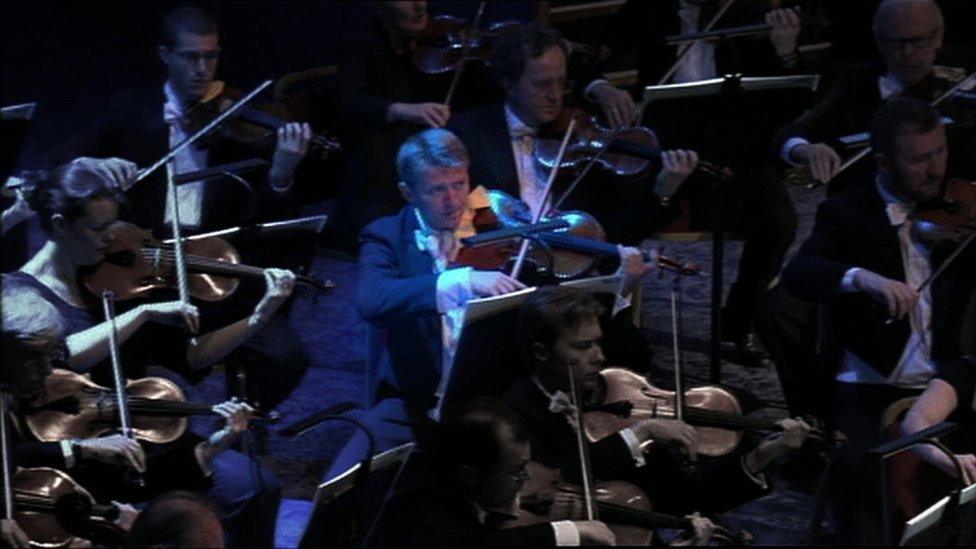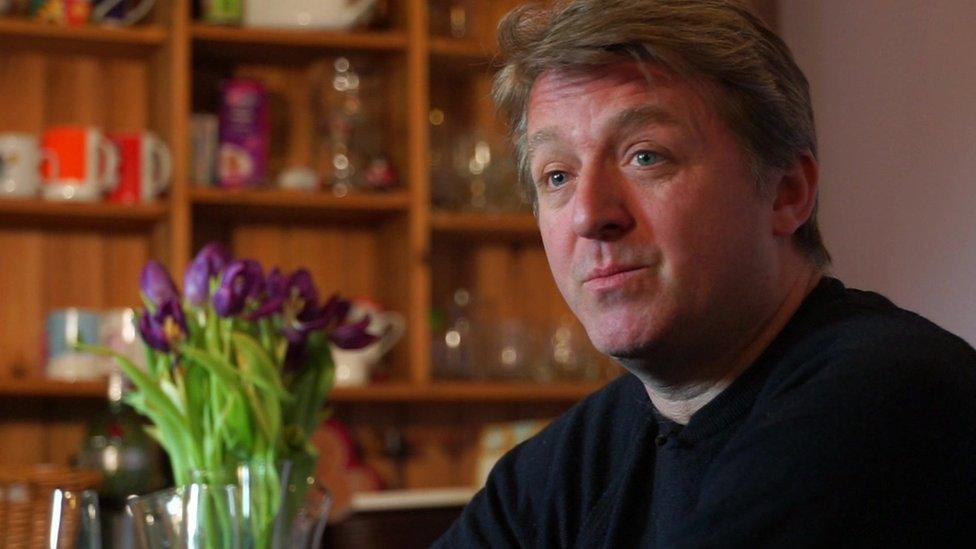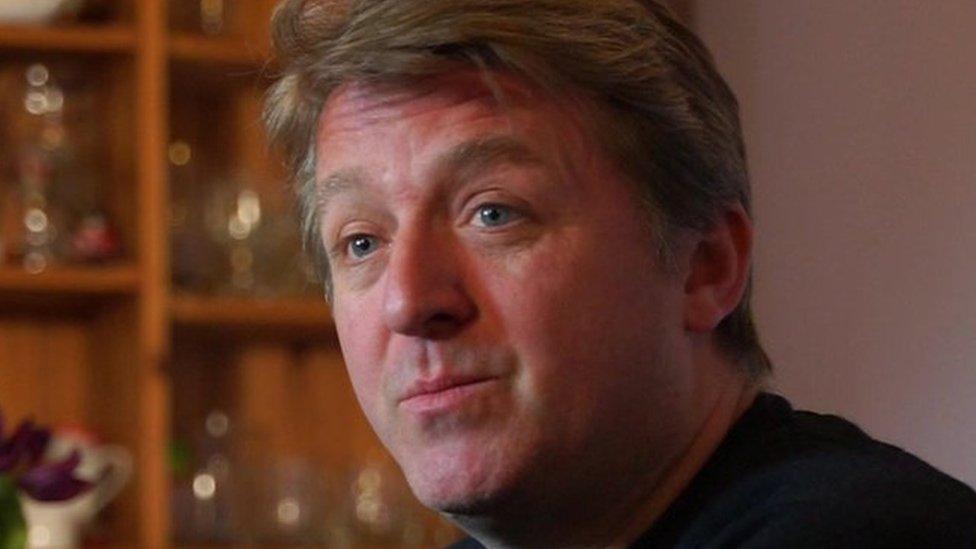Royal Opera House loses appeal over viola player's hearing
- Published

Christopher Goldscheider joined the viola section of the ROH orchestra in 2002
The Royal Opera House has lost its appeal over the life-changing hearing damage caused to a viola player at a rehearsal of Wagner's Die Walkure.
The Court of Appeal ruled unanimously, external that the ROH failed to take reasonable steps to protect Christopher Goldscheider during the 2012 rehearsal.
It also failed to act on dangerous noise levels until after Mr Goldscheider's injury, the court ruled.
The ROH said it was "disappointed" by aspects of the court's ruling.
Mr Goldscheider won a landmark High Court case last year, which was challenged by the ROH.
In that case, Mr Goldscheider sued the London opera house, claiming damages for acoustic shock - a condition with symptoms including tinnitus, hyperacusis and dizziness - after being exposed to noise levels exceeding 130 decibels.
It was the first time acoustic shock had been recognised as a condition which could be compensated by a court.
In its appeal, the ROH claimed the artistic value of the music produced by the orchestra meant that some hearing damage to its players was inevitable and justifiable - but that was rejected by the court.

Mr Goldscheider said he hoped the Court of Appeal guidance will help others
On 1 September 2012, Mr Goldscheider was seated directly in front of the brass section of the orchestra for a rehearsal of Wagner's thunderous opera Die Walkure in the famous orchestra pit of the opera house, in Covent Garden.
The bell of a trumpet was immediately behind his right ear during the rehearsal and noise levels reached 132 decibels - roughly equivalent to that of a jet engine.
His hearing was irreversibly damaged. Mr Goldscheider, from Bedfordshire, now has to wear ear defenders to carry out everyday household tasks such as preparing food.
Speaking after Wednesday's Court of Appeal decision, he said: "I am grateful to the court for acknowledging that more should have been done to protect me and other musicians from the risk of permanent and life changing hearing problems.
"We all want to find a way to participate and share in the experience of live music in a safe and accessible way and I hope that the guidance which the Court of Appeal has given in my case will help others. I hope that the Royal Opera House will now support me to get on with rebuilding my life."

Analysis
By Clive Coleman, BBC legal correspondent
In terms of protecting people from hearing damage due to noise, this case effectively brings an orchestra space - or any live music venue for that matter - into line with other working environments such as a factory floor. An orchestra space or gig venue becomes, if you like, a factory where noise is the end product rather than the by-product of an industrial process.
Because no classical musician has sued an orchestra for acoustic shock before Mr Goldscheider, it has become something of a myth that orchestra spaces and live music venues are exempt from noise protection.
That myth was fed in part by a defence available to employers under the Compensation Act. It effectively said that as the product (that is, the music) was of high artistic value, some noise damage to those producing it was acceptable.
But the Court of Appeal ruling lays that myth to rest. Employers and organisers will now have to put processes in place to assess noise and anticipate sudden rises in noise levels. They will then have to take all reasonably practical steps to prevent injury resulting from the noise. The music won't stop, but it could get a fair bit quieter.

Alex Beard, chief executive of the ROH, said he was pleased the court had accepted its argument that it was not "reasonably practicable for orchestral musicians to wear hearing protection at all times whilst performing and rehearsing".
Such a move, as recommended in the original High Court ruling, would be "completely impractical with potentially devastating and far-reaching consequences for the entire sector", he said.
He said the ROH would work with its legal team to consider its next move.
"This is an unprecedented and unusually complex case for the live-music and theatre industries and we will continue to work collegiately with other cultural institutions to encourage and implement best practice across the sector," added Mr Beard.
'Live music implications'
Mr Goldscheider's solicitor, Chris Fry, said: "Live music, and quality artistic output can be ruined by turning sound into noise.
"I can choose to turn volume and other settings down if I listen in private, but no such luxury existed for Chris Goldscheider and many other musicians who are required to have someone else dictate the noise they are exposed to at work."
Chris Fry speaks to BBC News
He said the hearing protection is "not always practicable" and was "never intended to be the complete solution".
"The court's emphasis on reducing noise at source will have implications in live music, entertainment and sports across various jurisdictions where there is the potential for sudden and unexpected noise," he added.
Mr Goldscheider began playing the violin at the age of five and the viola from about 21. He studied in Prague and the UK and played with the Royal Liverpool Philharmonic and BBC Symphony orchestras.
In 2002 he joined the viola section of the ROH orchestra as number eleven viola and was promoted to number six. Career highlights included playing on stage with Kylie Minogue and with the Three Tenors to 100,000 people in Barcelona.
He left the ROH in July 2014 as a result of his injuries.
- Published28 March 2018

- Published1 April 2016
